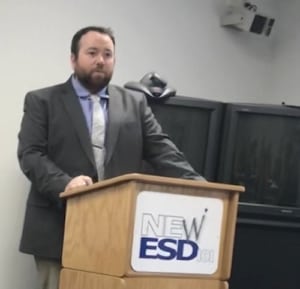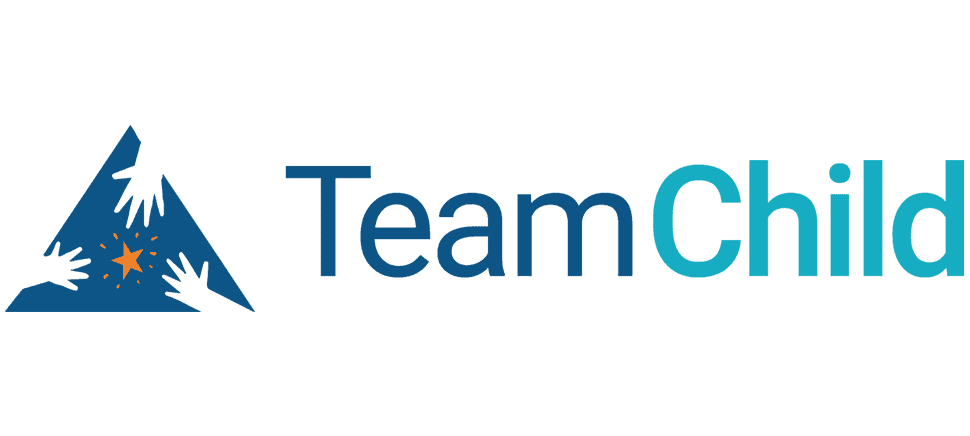DON’T JUST FOLLOW THE RULES. MAKE THEM BETTER.
 My first school discipline case was over 15 years ago. When I got my first case as a TeamChild attorney representing a student who was expelled from school, I immediately reached out to my client’s high school principal. This is the person who issued the expulsion to begin with. In my youthful and optimistic state of mind, I felt certain that if I just connected with this principal, I could get him to understand the consequences the expulsion would have on my client and my client would be reconnected to education fast – an open and shut case.
My first school discipline case was over 15 years ago. When I got my first case as a TeamChild attorney representing a student who was expelled from school, I immediately reached out to my client’s high school principal. This is the person who issued the expulsion to begin with. In my youthful and optimistic state of mind, I felt certain that if I just connected with this principal, I could get him to understand the consequences the expulsion would have on my client and my client would be reconnected to education fast – an open and shut case.
I called up the principal and drove out to the rural high school where my client had been expelled. It was the only high school around in a part of Washington state where it takes a long time to get from one town to the next. I sat down across from the principal and pitched my client’s situation. I told him about how important education was to my client, how he could make amends for his behavior, and how, without this principal’s help, my client would have nowhere to go to complete his education. There were no alternative high schools or other options within miles of my client’s home. My client, at 14, had no way to transport himself to another location. He was dependent on the school bus just to get him to the high school that expelled him. Sitting out of school for a year or longer would only disconnect him from the likelihood of earning a diploma and gaining the necessary skills to enter our state’s workforce ready to contribute.
To my surprise, the principal’s response was this: “Wait, where DO expelled kids go to school?!” This principal, whose job was to expel students when he thought it was appropriate, had no idea what happened to them after they were removed from his school. At that moment, I realized that school discipline was a systemic problem much bigger than just the one client in front of me. It was a problem that disconnected kids from school, sometimes forever. Because at that time there were no end dates to expulsions and no educational entity with the responsibility of providing education to expelled students, TeamChild used to call expulsions the “death penalty” of discipline.
Luckily, school discipline rules have changed significantly since my first TeamChild school case. The newest changes to state law accomplish two really important things. First, all expulsions have to have an end date that is no longer than one academic term. This is an important step towards reducing the likelihood that an expelled student drops out of school all together because there is a clear date that the student can rely on to return to their school. But the second change is potentially even greater. Every suspended and expelled student must receive educational services during any period of exclusion. This means that the principal in my first case who expelled that client would have to have a plan for educating that student during the entire period of exclusion. That principal would no longer wonder what happened to expelled students – because expelled students are still enrolled in school – receiving educational services.
These new state laws have been in place for a few years. But the Office of Superintendent of Public Instruction (OSPI) has just recently proposed regulations that will help guide school districts in the details of how to implement these important changes. These proposed regulations have been made public this fall and for the next month so that the public can comment on them and make suggestions to improve them or just to affirm the proposed changes. Anyone can comment on proposed regulations. If you want to read them for yourself and learn about the public comment process, visit the OSPI website.
 There are several public hearings where comments can be made in person. TeamChild attorney Dan Ophardt attended the first public hearing in Spokane on October 17. Our main message to OSPI includes:
There are several public hearings where comments can be made in person. TeamChild attorney Dan Ophardt attended the first public hearing in Spokane on October 17. Our main message to OSPI includes:
- The new (proposed) rules offer students less due process. This means less protection from being removed from school unfairly. We encourage OSPI not to go backwards, by reducing student protections. The initial way a student and family can challenge a proposed removal from school is to allow the student to meet with the principal one on one, without the parent there. Not only is this a lower amount of protections that the current law (which allows the first challenge to be in front of a hearing officer with your parent and an attorney present), it puts all the burden on the student to speak up for themselves against a school administrator. This is really unfair. School administrators have an overwhelming amount of power over students. A meeting between a student and a principal is not an equitable meeting.
- OSPI attempts to define the types of educational services provided to students who are suspended and expelled from school. Unfortunately, the definition does not include “instruction” as part of the services that must be provided to students. Educational services without instruction is not an education.
- The changes to school discipline require school districts to develop culturally responsive parent engagement practices (See article from Seattle Times). Without parent input, it will be difficult for OSPI and school districts to clearly define and understand what is culturally responsive for parents. Any feedback students, parents, and community can provide on explaining what culturally responsive means to you would be very helpful!
TeamChild is working with other advocacy organizations, community groups, parents and students to give feedback on these new and important regulations. We hope you will as well!
The deadline for making written comments about the discipline regulations is November 13, 2017. The remaining public hearings are scheduled for October 30 at 3 pm in Yakima, November 7 at 1 pm in Renton and November 13 at 1 pm in Olympia. The locations and details can be found here.

 The concept behind TeamChild is not rocket science, but in 1997, it was cutting edge. It intentionally broke through the service delivery silos of civil legal aid and public defense. We confronted the obstacles teenagers faced and took action to get to the root of why they were getting into trouble with the law. Our clients shared their strengths and hopes, and we stood by them during the toughest of times. As lawyers, we made sure that the education, health care, and other child serving systems provided the services they were created deliver. Shoring up community supports in a holistic way gave courts more options; and our clients stayed out of jail and got more chances to be diverted from juvenile court involvement altogether. #standingwithyouth
The concept behind TeamChild is not rocket science, but in 1997, it was cutting edge. It intentionally broke through the service delivery silos of civil legal aid and public defense. We confronted the obstacles teenagers faced and took action to get to the root of why they were getting into trouble with the law. Our clients shared their strengths and hopes, and we stood by them during the toughest of times. As lawyers, we made sure that the education, health care, and other child serving systems provided the services they were created deliver. Shoring up community supports in a holistic way gave courts more options; and our clients stayed out of jail and got more chances to be diverted from juvenile court involvement altogether. #standingwithyouth Pat, Simmie, and Elizabeth planted the seeds for TeamChild, and thanks to countless supporters and partnerships over the years, we have been able to provide critical legal advocacy for over 14,000 young people across the state. We are committed to expanding our capacity to meet the legal needs of youth who are at highest risk for entanglement in the juvenile and criminal justice system. At the same time, we recognize that working with youth one by one is not enough. Although school exclusions and juvenile justice numbers have declined dramatically, our state still has over 16,000 juvenile detention admissions a year and more than 40,000 suspensions and expulsions from school. And, system reform efforts to date have not been able to reduce the alarming disparities across race, disability and income. The number and rates of youth incarceration and exclusionary discipline are glaring indicators of our failure to support children. So, we have set our sights on dramatically cutting the number and rates of incarceration and school exclusions. We’re building our policy and training programs and strengthening our community partnerships in order to dismantle the pipelines that push youth into the justice system and replace outdated and punitive strategies. We can’t do this work alone, and urge you to join our efforts. We need partners of all sorts — passionate visionaries, worker bees, investors, and innovators. We look forward to hearing from you! #buildingamovement, #zeroincarceration, #youthfirst
Pat, Simmie, and Elizabeth planted the seeds for TeamChild, and thanks to countless supporters and partnerships over the years, we have been able to provide critical legal advocacy for over 14,000 young people across the state. We are committed to expanding our capacity to meet the legal needs of youth who are at highest risk for entanglement in the juvenile and criminal justice system. At the same time, we recognize that working with youth one by one is not enough. Although school exclusions and juvenile justice numbers have declined dramatically, our state still has over 16,000 juvenile detention admissions a year and more than 40,000 suspensions and expulsions from school. And, system reform efforts to date have not been able to reduce the alarming disparities across race, disability and income. The number and rates of youth incarceration and exclusionary discipline are glaring indicators of our failure to support children. So, we have set our sights on dramatically cutting the number and rates of incarceration and school exclusions. We’re building our policy and training programs and strengthening our community partnerships in order to dismantle the pipelines that push youth into the justice system and replace outdated and punitive strategies. We can’t do this work alone, and urge you to join our efforts. We need partners of all sorts — passionate visionaries, worker bees, investors, and innovators. We look forward to hearing from you! #buildingamovement, #zeroincarceration, #youthfirst